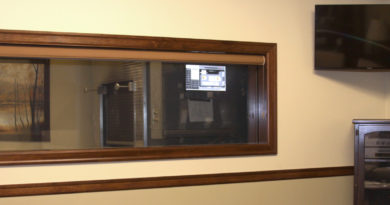How to Solve a Funeral-related Complaint

to your satisfaction. Photo © iStock.com/almir1968
Despite the best efforts of funeral directors, cemetery personnel, cremation providers and others, errors and misunderstandings can still occur that make an already sad and painful time even more difficult. If you’ve experienced this, here are the steps you should take to file a funeral-related complaint that, hopefully, solves the issue to your satisfaction.
1. Seek Friendly Advice
When a loved one dies, grief can heighten our emotions and make us far more sensitive to things than we realize. In addition, planning a funeral, memorial, cremation and/or burial service involves a myriad of details, decisions and distractions that can prove exhausting and affect the clarity of our thoughts. Thus, by the time the service(s) is performed, little things that we might not otherwise notice or care about can assume greater significance and add to our sorrow and sadness.
If you’ve experienced this and contemplate making a complaint, the first thing you should do is discuss the matter with a trusted family member or friend. Explain your concern or problem as clearly as possible and ask for his or her thoughts and reaction. In some cases, you might be responding emotionally or not remembering something clearly, which your friend or family member can gently help you realize. In other cases, he or she might agree that you have a legitimate basis for a formal complaint.
In addition, you should review your rights under the Federal Trade Commission’s “Funeral Rule.” The rule specifies the type of information and disclosures that funeral homes must provide to consumers in order to protect the latter from unscrupulous business practices. (Cemeteries and cremation facilities are generally exempt from the Funeral Rule.)
Finally, you and your family member or friend should discuss how you would like the problem solved. Do you seek a partial refund on an item or service provided? An explanation? An apology? Ask yourself what it will take to reasonably resolve your complaint to your satisfaction.
2. Talk to Your Provider
Once you are clear about the nature of the complaint you wish to make and the outcome you’d like to achieve, the next step is to communicate your concern to your funeral or interment provider. Often, meeting face-to-face proves the easiest and most effective method, but you can also phone, write a letter or send an email if you prefer. In any case, you will need to bring or have handy any paperwork you received when making the funeral, cremation or interment arrangements, and particularly anything you signed.
If you decide to meet personally with a funeral director, cemetery representative or some other staff member, you should consider asking a trusted family member or friend to attend this meeting with you. Ideally, he or she will have attended the service in question for your loved one and can offer a more objective perspective during the conversation, if necessary. (It also helps to have another set of ears in the room to help you recall the discussion afterward.)
If you choose to communicate via the telephone or in writing, ask this person to listen to the call or to review your letter/email before you send it. If your issue involves a discrepancy in the paperwork you received, include a photocopy (not the original!) of any relevant page(s) when writing, or have it handy when you call.
Don’t feel afraid to take notes during your conversation (whether in person or via the telephone), including the date, time and location, as well as the name of the person and his or her title, if known. If you send a letter or an email, make sure you keep a copy in case you need it later.
Regardless of how you decide to communicate initially, keep your complaint polite and focused by stating the problem, as you understand it, and how you’d like to see it resolved. Avoid becoming combative, accusatory or overly emotional, and do not post your complaint on social media beforehand, which will likely only inflame the situation.
Instead, try to keep in mind that despite a provider’s best efforts, an error or simple misunderstanding can occur, and he or she might be totally unaware of whatever caused your concern. Moreover, the goal of any reputable funeral home, cemetery or cremation provider is to serve and satisfy the needs of a grieving family at a difficult time. Hopefully, if possible and when given the opportunity, he or she can resolve the issue quickly and to your satisfaction.
3. Contact a Professional Association
If your communication(s) with your provider fails to resolve your complaint, you might consider contacting one of the numerous trade, professional and consumer groups that represent funeral, cremation and/or interment businesses. Generally, leading providers belong to at least one of these organizations. Some of these associations require their members to adhere to a formal code of conduct and ethical business behavior as a condition of membership, and will facilitate complaints between consumers and member firms when informed.
The first step is to determine if your provider belongs to one of these groups. Many of the following national associations offer an online directory to help you locate a specific member firm:
Cremation Association of North America
International Cemetery, Cremation and Funeral Association
International Order of the Golden Rule
Jewish Funeral Directors of America
National Funeral Directors Association
National Funeral Directors and Morticians Association
Selected Independent Funeral Homes
In addition, most U.S. states have associations and organizations representing the funeral homes, cemeteries and/or cremation providers within their borders, and some have groups representing monument builders or embalmers. If a relevant state-based group does not provide an online directory, don’t hesitate to call, write or email and inquire about your provider’s membership status.
If your provider does not belong to any of these groups, you may also contact the Funeral Consumers Alliance, an independent, nonprofit organization that provides information, resources and assistance to help resolve consumer complaints.
Once you locate a relevant association or organization, the representative will likely walk you through its complaint-resolution process. You should be prepared, however, to again explain the nature of your issue, how you would like to see it resolved, and the steps you have taken thus far to solve your complaint. Again, keep your original paperwork and your notes handy to help you keep your facts straight.
4. Contact the State Board
As noted above, funeral-related complaints often result from an unforeseen error or simple misunderstanding, and hopefully your provider or a professional organization has resolved the matter by now. But if you remain dissatisfied about the original issue or the response you’ve received — or if you believe you are the victim of unethical, immoral or criminal behavior — then it’s time to reach out to a higher authority. (Depending upon the nature of your complaint, this might also be a good time to discuss the matter with an attorney, if you haven’t already.)
The majority of U.S. states regulate the funeral, cemetery and/or cremation businesses within their individual borders. While the rules, regulations and licensure of individual practitioners can vary significantly between states, most have a board, agency, bureau or department that oversees these services. After you locate the relevant oversight group for your state, you should contact them via telephone, email or writing and inquire about their complaint-submission process. The funeral service boards in many states provide an online form that you will need to fill out and submit, but it’s worth your time to contact them first to learn exactly what they need from you because these groups generally meet infrequently.
This can prove a slow process that takes several months (which is why it’s important to get your submission right the first time), so be prepared. In addition, you might or might not be informed about the decision reached and/or any disciplinary action taken depending upon your state’s freedom-of-information or “sunshine” laws. While the details of the funeral service board’s investigation and discussions are typically private, some states publish disciplinary action decisions, some do not, and some will communicate results directly to the consumer who files the complaint.
5. Contact the Attorney General
If you believe your provider has broken the law or defrauded you, submit your complaint to your state’s attorney general, its highest law-enforcement officer. In some states, even if you first contact the board, agency, bureau or department that oversees funeral- and burial-related services (see previous section), your submission will initially be sent to the state’s attorney general for a decision on the merit of the complaint and whether an investigation is warranted.
Once you locate your state’s attorney general (AG), you will again need to relate the basis of your complaint, how you would like to see it resolved, and the steps you have taken thus far to solve it. The websites of many state attorneys general feature a prominent “file a complaint” link that offers more information about the process and, often, an online form you can submit.
Again, it’s important to understand that this process can take a while and you might not even receive an initial response for a month or more, depending upon the number of consumer complaints your AG’s office handles and its resources.
After reviewing your complaint, your AG’s office might take one of several possible steps, such as referring you to another agency or department; suggesting that you hire a lawyer and pursue the matter in court; initiate enforcement action against the provider; or simply keep your complaint on record for future reference. Some states also offer a mediation program to resolve consumer-business issues to which you might be referred, if deemed appropriate.
6. Contact the FTC
Finally, if you’ve experienced a violation of your consumer rights under the Funeral Rule, then you should also file a complaint with the Federal Trade Commission (FTC), which oversees providers of funeral goods and services. Understand, however, that the FTC will not work to resolve your specific issue or problem on your behalf. Instead, the FTC watches for patterns of abuse or violations of the law by funeral homes and might take action against a specific firm if the agency receives enough complaints.
The easiest way to file a funeral-related complaint with the FTC is via its website, but you can also call 877-FTC-HELP (382-4357).







